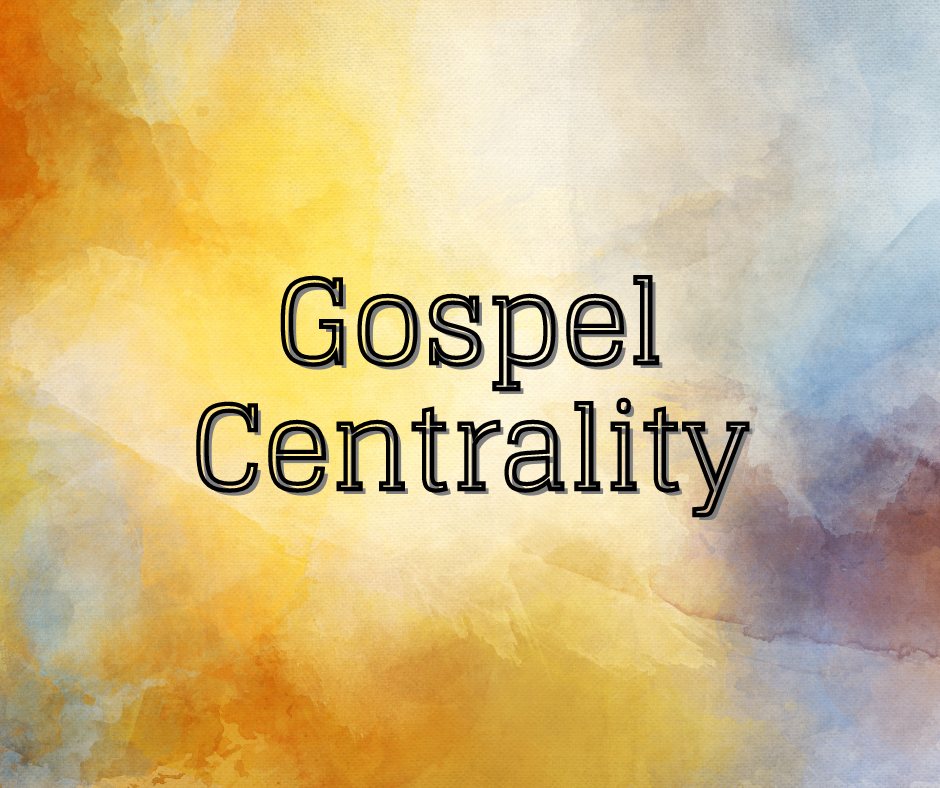Blessed to be Rich? A Biblical Theology of Blessing (Part 1)


The so-called “prosperity gospel” is prevalent and pervasive. Students and pastors from Nigeria to Myanmar frequently ask me about its theology and speak of its influence. In this series of posts I want to outline a response to it.
Introduction to Prosperity Theology
In summary, prosperity theology says that God wants his people to be rich.
James Tinney summarises it as:
“God’s got it, I can have it, and by faith I’m going to get it.”[1]
Oral Roberts, one of the chief founders of the movement, takes his cue from 3 John 2:
“Beloved, I wish above all things that thou mayest prosper and be in health, even as thy soul prospereth.”[2]
For Roberts and those who have followed him, God’s will is for Christians to be financially blessed and prosperous. Sometimes financial wealth is regarded as a measure of faith – meaning poverty shows a lack of faith or obedience. Pat Robertson says that poverty “is a curse that comes upon those who either have not served God properly, or who are not following certain laws of God, or are temporarily in transit to one of God’s destinations.”[3]
Sometimes prosperity doctrine is linked to pleas to support Christian ministry. Oral Roberts promised a ‘Blessing Pact’ in which everyone who gave $100 to his ministry would receive a refund if they didn’t receive at least the same back in blessing within a year from some unexpected source.One writer, at least, likens this to pre-Reformation indulgence sales.[4]
The Theological Platform of Prosperity Theology
Prosperity theology relies heavily on an Old Testament vision of life. It highlights the physical blessings given to Adam and Eve and the promises of prosperity given to Abraham. It reasons that, since prosperity was lost through sin, it must also be restored by Jesus’ removal of sins’ curse. Jesus makes that blessing of wealth available through faith that claims it.
The promises to Abraham are crucial here. No doubt, the promises of Genesis 12:2-3 do imply prosperity and wealth, though that is made neither explicit nor primary (Abraham’s general greatness as a blessing of the nations is primary). Furthermore, as the Old Testament narrative unfolds, prosperity becomes more explicit. Abraham himself is wealthy (Genesis 13:2). Those who obey the law of Moses are promised prosperity too (see Deuteronomy 28:1-14).
Prosperity theology insists that these promises still apply to Christians. As James Smith observes, Pentecostalism embraces a wholistic vision of creation that refuses to spiritualise the promises of the Gospel.[5]
Responses to Prosperity Theology
Nevertheless, there are various criticisms that might be made of the prosperity gospel. For example, a soon-to-be-published sociological study of mega-churches in Singapore suggests that those attracted to it tend to conform to a social type: upwardly mobile people – often from poorer backgrounds, but now well-educated and part of the new middle class.[6]
Another criticism might be made that prosperity theologians have quick answers for the complexities of life, and “reduce the Christian life to knowing the right technique or formula, or following the prescribed steps to achieve prosperity.”[7]
Others have taken prosperity theology to task on its exegesis:
- John Kim argues that mercenary expectations of rewards for tithing rest on a mistaken reading of Malachi 3:10.[8]
- Gordon Fee similarly challenges Oral Roberts’ interpretation of 3 John 2 – arguing that the verse is simply not about financial prosperity.[9]
- Bruce Barron notes how prosperity readings of Mark 10:29-30 (where Jesus speaks of a hundredfold return for those who leave everything to follow him) typically fail to apply the saying to anything other than money, and usually ignore the comment about “leaving everything.”[10]
Yet another standard response to prosperity theology is to survey what the New Testament has to say about wealth.
- Fee demonstrates that the New Testament position on poverty and suffering fits within an eschatological framework of the now and not yet.[11]
- Blomberg offers a substantial survey of the whole Bible’s teaching on possessions and money.[12]
The Need for a Biblical Theology Approach
These responses have true things to say. But what is really needed is a biblical theology approach. As Fee observes, the weakness of prosperity theology isn’t just that it cherrypicks and misinterprets key texts, it also demonstrates a “failure to have a wholistic biblical view of things, especially a failure to understand the essential theological framework of the New Testament writers.”[13]
For Fee himself however, the framework of biblical theology is eschatological:
“By the time of the coming of Jesus, Jewish hopes for salvation had become totally eschatological. The present age was seen as under Satan’s dominion, and thus totally evil … The Jews had therefore come to give up on any salvation in history.”[14]
While Fee is correct in his analysis of the eschatological framework of Jesus and the gospel message, his framework fails to do justice to the Old Testament.
John Kim is similarly weak. He argues that all the blessings associated with the covenant with Abraham are fulfilled in Jesus and no longer apply to Christians today. While he does tie the theme of blessing to the parallel theme of the people of God, noting the change of the people of God from nation to church, his treatment is all too brief. The real blessing, for Kim, is God’s presence.[15] True, of course, but inadequate.
The root problem here is a fragmented approach to the Bible: A verse for the day on a calendar, or via Facebook; devotional books that focus on one verse at a time; textual preaching. All these make it harder for all of us – both prosperity advocates and their critics – to read the Bible in its context.
If we really want to understand what the Bible has to say about prosperity we need to go beyond the verse-by-verse approach and study the broad stream of biblical flow and development.
In part 2 of this series, we will try to do just that, beginning with Genesis.
This article was originally published by The Gospel Coalition Australia and has been republished with permission from the author.
[1] Art Lindsley, “Settling for Mud Pies” in The Agony of Deceit (ed. Michael Horton; Chicago: Moody, 1990) 50.
[2] Bruce Barron, The Health and Wealth Gospel (Downers Grove, IVP, 1987) 62.
[3] Michael Horton, “The TV Gospel” in The Agony of Deceit (ed. Michael Horton; Chicago: Moody, 1990) 126.
[4] Joel Nederhood, “Send No Money to Martin Luther” in The Agony of Deceit (ed. Michael Horton; Chicago: Moody, 1990) 233-240. See also Horton, 128.
[5] James K A Smith, Thinking in Tongues: Pentecostal Contributions to Christian Philosophy (Eerdmans, 2010) 43.
[6] See Different Under God: A Survey of Churchgoing Protestants in Singapore by Terence Chong and Hui Yew-Foong, yet to be published. Report by Terence Chong at http://newasiarepublic.com/?p=39521, accessed on 5 August 2012.
[7] Lindsley, 57.
[8] John E. Kim, The Biblical Concept of Blessing and Prosperity (Bangalore: Centre for Contemporary Christianity, 2007) 1-6. The verse is frequently used in support of the teaching that blessing is a reward for giving.
[9] Gordon D. Fee, The Disease of the Health and Wealth Gospel (Vancouver: Regent College Publishing, 2006) 10-11. Barron, 91-93, and Kim, 10-12, also deal with this text.
[10] Barron, 89-90.
[11] Fee, 31-35.
[12] Craig L. Blomberg, Give Me Neither Riches nor Wealth: A Biblical Theology of Possessions (NSBT; IVP, 2000).
[13] Fee, 21, 30.
[14] Fee, 30.
[15] Kim, 23-25.
Get articles delivered straight to your inbox. Sign up for our mailing list here.
Follow us on:

Paul Barker is an Assistant Bishop in the Anglican Diocese of Melbourne. Until 2016 he was Regional Coordinator for Asia for Langham Preaching, a Visiting Lecturer at Myanmar Evangelical Graduate School of Theology and taught in a variety of other Asian seminaries. He is the author of The Triumph of Grace in Deuteronomy, a book of expositions on Amos and other articles and short books. Formerly he was Senior Minister of Holy Trinity Anglican Church Doncaster, Melbourne.
Related Articles
The Extension of Eden: From Promised Land to New Creation

The question of the promises regarding the land of Israel has always been a vexed one, arising afresh in the modern day conflict between Israel & Palestine. How does biblical theology help us in thinking rightly about the Promised Land? In this, article, we consider the Bible's teaching from Genesis to Revelation and it's implications for how we think about the Promised Land today.
Gospel Centrality: What are we really talking about?

“Gospel-centred”. Perhaps you’ve heard that phrase thrown around in the last few years! Indeed, it’s language I myself have adopted, as I’ve exhorted my congregation. “Live a gospel-centred life!” “Let’s be a gospel-centred church!” But what do I mean by that? That’s something I’ve been pondering for a while now. After all, if I’m not clear what I mean...
Biblical Theology of Race

Although Christians are familiar with the Biblical injunction that faith in Jesus Christ means, among other things, the rejection of racism (e.g., Gal. 3:28; Eph. 2:14), the history of Christianity leaves much to be desired of. The Holy Writ was abused by Nazi Germany to espouse anti-Semitism and the promotion of the Aryan master race...
